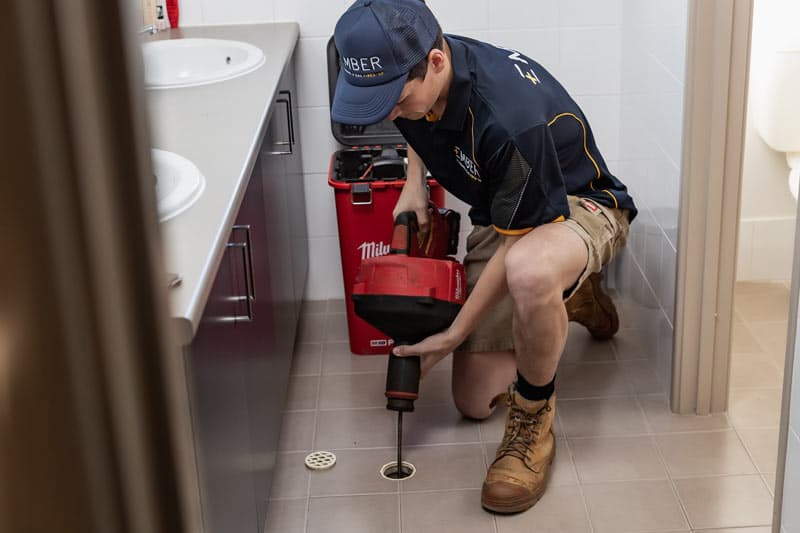Let’s face it, dealing with a blocked drain is never a pleasant experience. That slow-draining sink, the gurgling sounds coming from your pipes it’s enough to make anyone’s day a little less bright. But did you know that taking swift action when you suspect a blockage can save you a whole lot of hassle and money in the long run? If you’re facing issues with solutions for blocked drains around Perth, it’s essential to understand the importance of immediate attention.
In this article, we’ll delve into the benefits of tackling blocked drains head-on. From preventing costly repairs to safeguarding your family’s health, you’ll discover why ignoring that seemingly minor inconvenience could lead to major headaches. Plus, we’ll touch on the importance of professional help, especially when dealing with complex plumbing issues. So, grab a cuppa, settle in, and let’s explore the world of blocked drains and how to keep your Perth home flowing smoothly.
The Hidden Dangers of Ignoring Blocked Drains
It’s tempting to put off dealing with a slow-draining sink or a slightly gurgling toilet. After all, life gets busy, and a minor plumbing issue can easily slip down the priority list. However, ignoring blocked drains can have some serious consequences. Think of it like a small crack in a dam wall seemingly insignificant at first, but capable of causing catastrophic damage if left unchecked.
One of the most significant risks is the potential for property damage. A blocked drain can cause water to back up, leading to flooding and water damage to your floors, walls, and belongings. This can be particularly problematic in older homes with vulnerable plumbing systems. What starts as a simple blockage can quickly escalate into a costly and disruptive repair project.
Beyond property damage, blocked drains can also pose a health hazard. Stagnant water in blocked pipes can become a breeding ground for bacteria, mould, and other nasties. These can contaminate your water supply and lead to health problems, especially for young children, the elderly, and those with compromised immune systems. Nobody wants that!
Saving Money by Acting Fast
While the potential for property damage and health risks is enough to make anyone take blocked drains seriously, there’s also a compelling financial argument for acting quickly. The longer you delay, the more severe the blockage is likely to become. This means more complex and expensive repairs down the line.
Think of it this way: a simple blockage caused by hair and soap scum might be easily cleared with a plunger or a drain snake. However, if left unattended, this blockage can solidify and expand, potentially requiring professional drain cleaning services or even pipe replacement. The cost difference between a quick DIY fix and a major plumbing overhaul can be significant.
Furthermore, prolonged blockages can put extra strain on your plumbing system, leading to leaks, burst pipes, and other costly problems. By addressing blocked drains promptly, you can prevent these issues from arising and save yourself a considerable amount of money in the long run. It’s all about being proactive rather than reactive.
When to Call in the Professionals
While some blocked drains can be resolved with DIY methods, there are times when it’s best to call in the professionals. If you’ve tried plunging, snaking, and other common techniques without success, it’s a sign that the blockage is more severe and requires expert attention.
Another red flag is recurring blockages. If you find yourself constantly battling blocked drains, there may be an underlying issue with your plumbing system, such as damaged pipes or tree root intrusion. A professional plumber can diagnose the problem and provide a long-term solution.
For businesses, maintaining clear and functional drains is even more critical. Issues with specialised industrial plumbing can disrupt operations and lead to significant financial losses. Engaging with experienced commercial plumbers who understand the complexities of commercial systems is vital for minimising downtime and ensuring smooth operations.
Finally, if you’re dealing with a blocked drain that’s causing significant flooding or water damage, it’s crucial to call a plumber immediately. They can quickly assess the situation, stop the flow of water, and prevent further damage to your property.
The Importance of Regular Drain Maintenance
Prevention is always better than cure, and this holds true for blocked drains. By implementing a few simple drain maintenance practices, you can significantly reduce the risk of blockages and keep your plumbing system flowing smoothly. One of the easiest things you can do is to be mindful of what goes down your drains.
Avoid pouring fats, oils, and grease down the sink, as these can solidify and clog your pipes. Similarly, be careful not to flush non-flushable items down the toilet, such as sanitary products, nappies, and wet wipes. These items can easily get caught in your pipes and cause blockages.
Regularly flush your drains with hot water and a mild detergent to help break down any build-up of grease and grime. You can also use a drain snake or a specialised drain cleaning product to remove any minor blockages before they become more serious. Consider installing drain screens in your sinks and showers to catch hair and other debris before they enter your pipes.
The Benefits of a Healthy Plumbing System
Maintaining a healthy plumbing system is not just about avoiding blocked drains; it’s about ensuring the overall well-being of your home and family. A well-maintained plumbing system provides clean, safe water for drinking, cooking, and bathing. It also helps to prevent leaks, water damage, and other costly problems.
By taking care of your plumbing system, you can also improve the efficiency of your appliances, such as your washing machine and dishwasher. This can save you money on your water and energy bills. Furthermore, a healthy plumbing system can add value to your home, making it more attractive to potential buyers if you ever decide to sell.
Investing in regular plumbing maintenance is an investment in the long-term health and value of your property. It’s a small price to pay for the peace of mind that comes with knowing your plumbing system is in good working order.
Blocked drains are a common household problem, but they don’t have to be a major headache. By understanding the benefits of immediate action, you can prevent costly repairs, safeguard your family’s health, and maintain a healthy plumbing system. Remember, a little bit of prevention goes a long way.
So, the next time you notice a slow-draining sink or a gurgling toilet, don’t ignore it. Take action immediately, whether it’s a simple DIY fix or a call to a professional plumber. Your home and your wallet will thank you for it!
Frequently Asked Questions
1. What are the common causes of blocked drains?
Common causes include hair, soap scum, grease, oil, food scraps, and non-flushable items like wet wipes and sanitary products.
2. Can I use chemical drain cleaners to clear blocked drains?
While chemical drain cleaners can be effective, they can also damage your pipes and pose a health hazard. It’s generally best to try other methods first, such as plunging or snaking, or to call a professional plumber.
3. How often should I have my drains professionally cleaned?
It depends on the age and condition of your plumbing system, as well as your usage habits. However, it’s generally recommended to have your drains professionally cleaned every one to two years.
4. What are the signs of a serious plumbing problem?
Signs of a serious plumbing problem include recurring blockages, slow-draining sinks, gurgling sounds, low water pressure, and leaks or water damage.
5. How can I prevent blocked drains?
Preventative measures include avoiding pouring grease down the sink, not flushing non-flushable items, regularly flushing drains with hot water, and installing drain screens.


